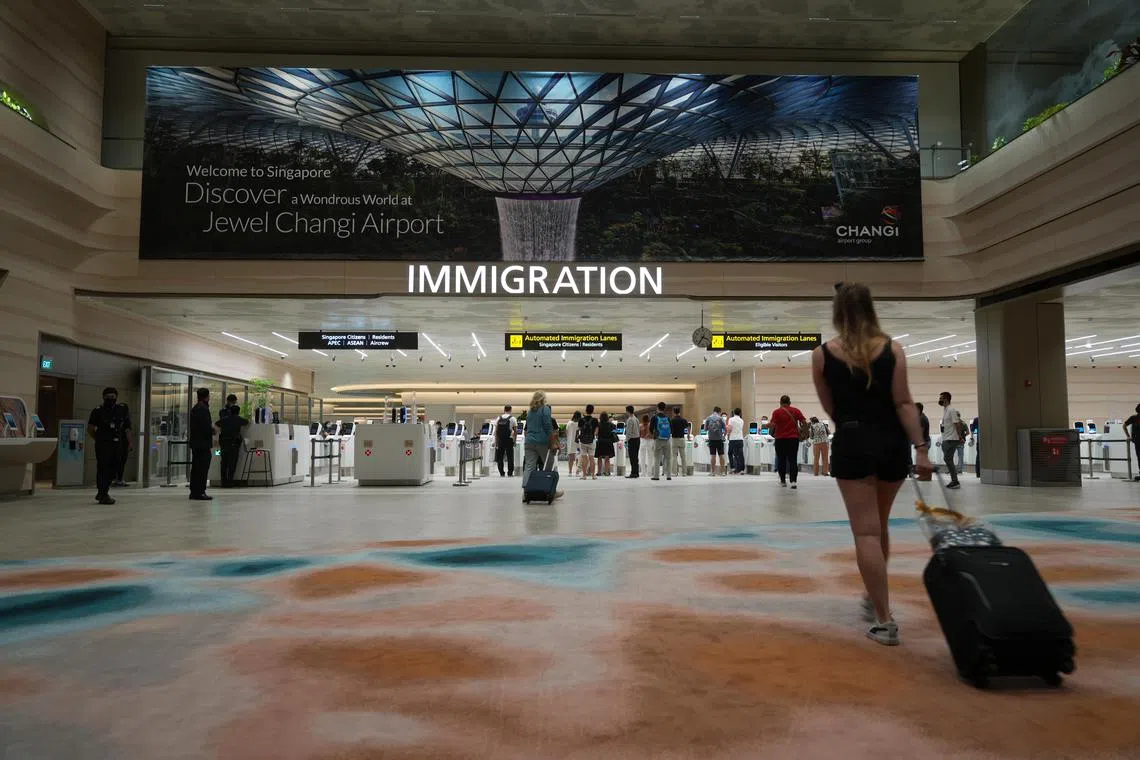askST Jobs: How to prepare for your first work trip abroad
Sign up now: Get ST's newsletters delivered to your inbox

Work trips are an opportunity for employees to stand out and grow professionally.
PHOTO: LIANHE ZAOBAO
In this series, manpower reporter Tay Hong Yi offers practical answers to candid questions on navigating workplace challenges and getting ahead in your career.
Q: I am about to be sent on my first overseas work trip. How should I prepare for it?
A: With the advent of work-from-home and remote work policies, work trips are not what they used to be: a chance to socialise with your overseas colleagues, enjoy team dinners and work at a more leisurely pace, says Mr Richard Bradshaw, managing director for Asia at recruitment firm Ethos BeathChapman.
Instead, they are an opportunity for you to stand out and grow professionally, he adds.
He suggests that employees demonstrate they are as productive as they usually are even when overseas, which helps to foster trust that they can work well even amid changing workplace norms.
“Take the opportunity to observe how it affects you personally too: Write down problems you face,” he adds.
You can also volunteer to do work that you would not usually be able to do back home, such as connecting with industry experts there, or kick-starting international collaborations that remain on the drawing board, such as workshops with your overseas peers.
Mr Bradshaw also advises employees on work trips to be vocal and present in the office, socialise with their foreign colleagues and make time to unwind.
“Socialise, but ensure people don’t feel it’s the only reason you’re there and don’t let it get in the way of a decent sleep schedule,” he says.
“Squeeze in a sight to see – pick one and really enjoy it,” he adds.
To avoid being swamped with work abroad, employees should plan their work week in advance with co-workers abroad and back home using digital tools such as videoconferencing, virtual calendars and to-do lists.
Employees going on their first work trip overseas should work with employers to ensure they have the required travel documents, says Mr Ram Lakshminarayanan, head of people and change advisory at professional services firm KPMG.
They should also arrange for business travel insurance to guard against any risks during their trip, as well as closely study their employers’ travel policies, especially those on expenses, which can differ widely across companies.
“In addition, they should take note of country-specific practices and cultural nuances to avoid any uncomfortable situations and be briefed on safety guidelines,” says Mr Lakshminarayanan.
As for what employers can do to help their employees perform their best abroad, Mr Bradshaw says employers should empower their staff but also be clear and firm on work expectations while there.
“Ensure a strong local point of contact is allocated to help with office introductions, bookings, or even for those dreaded travel emergencies.
Mr Lakshminarayanan says human resource teams can help employees by raising awareness of business travel risks through training programmes, codes of conduct and guidance, as well as providing up-to-date advice to all those who oversee business travel and employee relocation programmes.
“Ultimately, these programmes should be designed to put employees at ease when they are travelling overseas for work, so that they can take advantage of the experience, meet business objectives and maximise their career potential.
“One also needs to remember that overseas work trips are also an opportunity to expand one’s network, build new business opportunities and prime themselves to enter new markets.”
Have a question? Send it to askst@sph.com.sg



